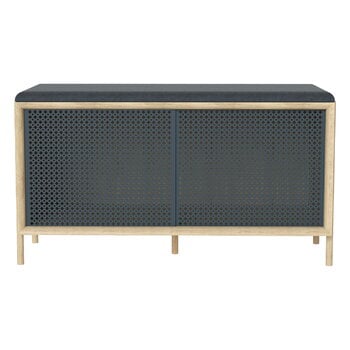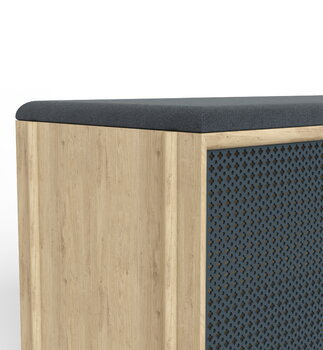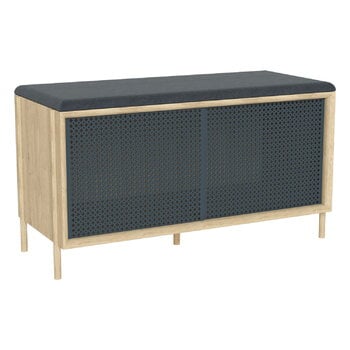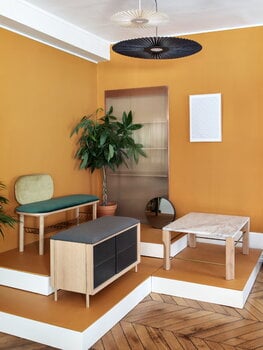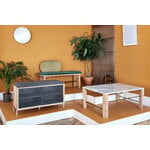The Gabin bench by the French brand Hartô plays with the contrast of oak-veneered frame and metallic sliding doors. Equally great as a hallway bench or a storage bench in a lounge or dining area, the Gabin bench features a soft seat and plenty of storage space for shoes, books, tableware or items of your choice. The perforated pattern softens the appearance of the doors and gives the bench an atmospheric look.
Gabin is a modern interpretation of vintage vitrines of the 1960s and its perforated pattern was inspired by wicker traditions. Gabin has been manufactured in Europe.

